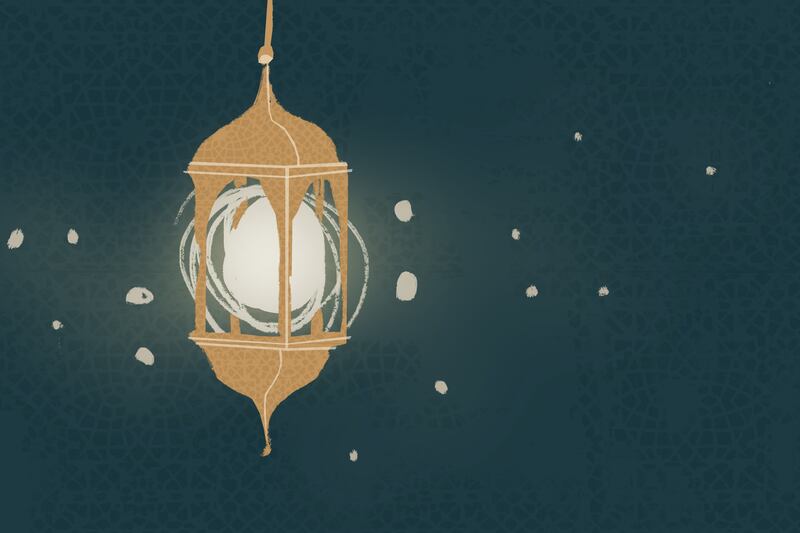Last week, my friend Ibrahim Abdul-Matin died. Just like that. He was 46 years old. He leaves behind a wife and three boys.
We had last corresponded on Tuesday afternoon, just 36 hours earlier.
Ibrahim wrote a book about Islam and the environment called “Green Deen.” He recently served as a senior fellow for my organization, Interfaith America. He was a Black American, a lifelong Muslim, an expert facilitator, someone who spreads light, not heat.
When my friend Chris, who serves on the board of an environmental organization, was looking for a diversity consultant who could engage both identity and stewardship issues, I told him about Ibrahim. “He’s your guy,” I said. “He’s the guy on this — galaxies beyond anyone else.”
I introduced them by email on Monday. I received Ibrahim’s response the next day. Here it is:
“I am always honored to get intros from Eboo — they come with so many blessings! Happy to find time to discuss. Below is my calendly link. Perhaps you can find a time that works for you?”
It was pure Ibrahim. The references to honor and blessings, the adab of the phrase “Perhaps you can find a time that works for you?”
We all have friends that we love. Most of us have lost some along the way. We wonder deep down if we loved the friends we lost — and the friends we still have — the way we should. The way we were meant to. The way that God meant us to.
How to describe Ibrahim?
You felt his presence in the room before you saw his face. You just knew he was there. The punch was sweeter, the food more flavorful, the conversation deeper.
And then, that face. It just shone. Literally.
In Islam, we speak of God as being “light upon light.” All of us are carriers of a piece of that light. Some of us have more of it than others. Ibrahim glowed with God’s light.
In the days that have passed since I learned of Ibrahim’s death, I have gone over our time together in my mind. One time, he called me and wanted to have a big-ideas conversation. It went on and on and on, a mesmerizing two hours.
There were several meetings that afternoon where someone must have said, “I thought Eboo was supposed to be here. Oh, well.”
Oh, well, indeed. I was communing with a human being in pure flow; there was no way I was going to break that sacred spell.
I’m so glad I stayed on that call until Ibrahim was finished talking. And I’m so glad that I told Ibrahim I loved him at the end.
Because love held within isn’t really love, in the same way that cake batter isn’t really a cake. It’s only baked in the sharing.

Here’s another memory. Last year, Ibrahim was our keynote speaker, alongside former Vice President Al Gore, for an event at the Smithsonian National Museum of African American History and Culture. It was one of the most remarkable talks I have ever seen.
Ibrahim began by vanquishing the jinn. (Jinn are demon-like figures in Islamic metaphysics.) “To all the jinn here I tell you that you are not invited,” he said. “We are trying to cultivate a space of beauty and community. We tell any creature who is about backbiting and mockery to begone.”
It could have been totally weird, but it wasn’t at all. And the sense of community in the event was beautiful. Al Gore was on the verge of breaking into gospel song. It was that kind of night. And with his presence, Ibrahim created the space.
Ibrahim wrote one of my favorite essays in the field of interfaith studies. It was called “The Water Carriers” and was about his experience as a young man on a three-week Outward Bound trip to Joshua Tree National Park in southern California.
One of his fellow travelers was a guy named Christian, who immediately informed the Outward Bound group that the end of the world was nigh and anyone who wasn’t a Christian would burn in hell — and Muslims would burn in the hottest part.
Ibrahim was a pretty big guy. So was Christian. As there were no naturally occurring water sources on the trail, the two biggest people in the group were automatically tasked to be the water carriers. Ibrahim and Christian were destined to spend a lot of time together.
When Ibrahim woke early the first morning for prayer, he was surprised to see Christian already awake, praying. Ibrahim took it as an opportunity to open up an interfaith dialogue.
He explained the significance of arduous physical journeys in Islam and asked Christian what they meant in his religion. When Christian slept through his alarm one morning, Ibrahim woke him up for prayer. It is the ultimate interfaith lesson: you can disagree with someone’s doctrine, and still respect their faith.
In the final leg of an Outward Bound trip, the instructor leaves and the group’s members have to choose two navigators. The group chose Christian and Ibrahim, two people who disagreed on fundamental things, and yet, working together, could be trusted to lead the group home.
Like the Prophet Muhammad, Ibrahim was al-amin, trustworthy. Convicted in his own faith, respectful of others, always creating opportunities for cooperation, the one you could trust to lead you home.
Rumi writes about the reed being separated from the reedbed, longing for return. That is how we humans are with our Maker. Inna lilahi wa inna ilahi rajiun — we are from God and we return to Him without doubt, just as Ibrahim did.
Eboo Patel, the founder and president of Interfaith America, is a contributing writer for the Deseret News, the author of “We Need to Build: Field Notes for a Diverse Democracy” and the host of the podcast “Interfaith America with Eboo Patel.”


